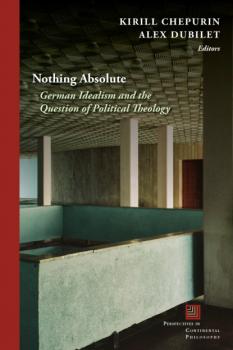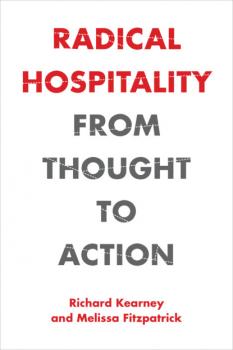ТОП просматриваемых книг сайта:
Perspectives in Continental Philosophy
Скачать книги из серии Perspectives in Continental PhilosophyАннотация
Featuring scholars at the forefront of contemporary political theology and the study of German Idealism, Nothing Absolute explores the intersection of these two flourishing fields. Against traditional approaches that view German Idealism as a secularizing movement, this volume revisits it as the first fundamentally philosophical articulation of the political-theological problematic in the aftermath of the Enlightenment and the advent of secularity. Nothing Absolute reclaims German Idealism as a political-theological trajectory. Across the volume’s contributions, German thought from Kant to Marx emerges as crucial for the genealogy of political theology and for the ongoing reassessment of modernity and the secular. By investigating anew such concepts as immanence, utopia, sovereignty, theodicy, the Earth, and the world, as well as the concept of political theology itself, this volume not only rethinks German Idealism and its aftermath from a political-theological perspective but also demonstrates what can be done with (or against) German Idealism using the conceptual resources of political theology today. Contributors: Joseph Albernaz, Daniel Colucciello Barber, Agata Bielik-Robson, Kirill Chepurin, S. D. Chrostowska, Saitya Brata Das, Alex Dubilet, Vincent Lloyd, Thomas Lynch, James Martel, Steven Shakespeare, Oxana Timofeeva, Daniel Whistler
Аннотация
Radical Hospitality addresses a timely and challenging subject for contemporary philosophy: the ethical responsibility of opening borders, psychic and physical, to the stranger. Kearney and Fitzpatrick show how radical hospitality happens by opening oneself in narrative exchange to someone or something other than ourselves—by crossing borders, whether literal or figurative. Against the fears, dogmas, and demands for certainty and security that push us toward hostility, we also desire to wager with the unknown, leap into the unanticipated, and celebrate the new, a desire this book seeks to recognize and cultivate. The book contends that hospitality means chancing one’s hand, one’s arm, one’s very self, thereby opening a vital space for new voices to be heard, shedding old skins, and welcoming new understandings. Radical Hospitality engages with urgent moral conversations concerning identity, nationality, immigration, commemoration, and justice, moving between theory and praxis and on to the formative life of the classroom. Building on key critical debates on the question of hospitality ranging from phenomenology, hermeneutics and deconstruction to neo-Kantian moral critique and Anglo-American virtue ethics, the book explores novel possibilities for an ethics of hospitality in our contemporary world of border anxiety, refugee crises, and ecological catastrophe.


